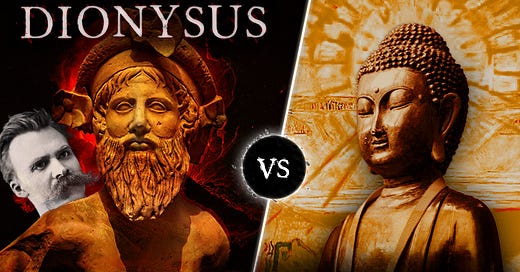Dionysus vs. The Buddha
How Nietzschean spirituality offers a third way between enlightenment and selling out
Upgrade to paid to play voiceover
Keep reading with a 7-day free trial
Subscribe to The Living Philosophy to keep reading this post and get 7 days of free access to the full post archives.




